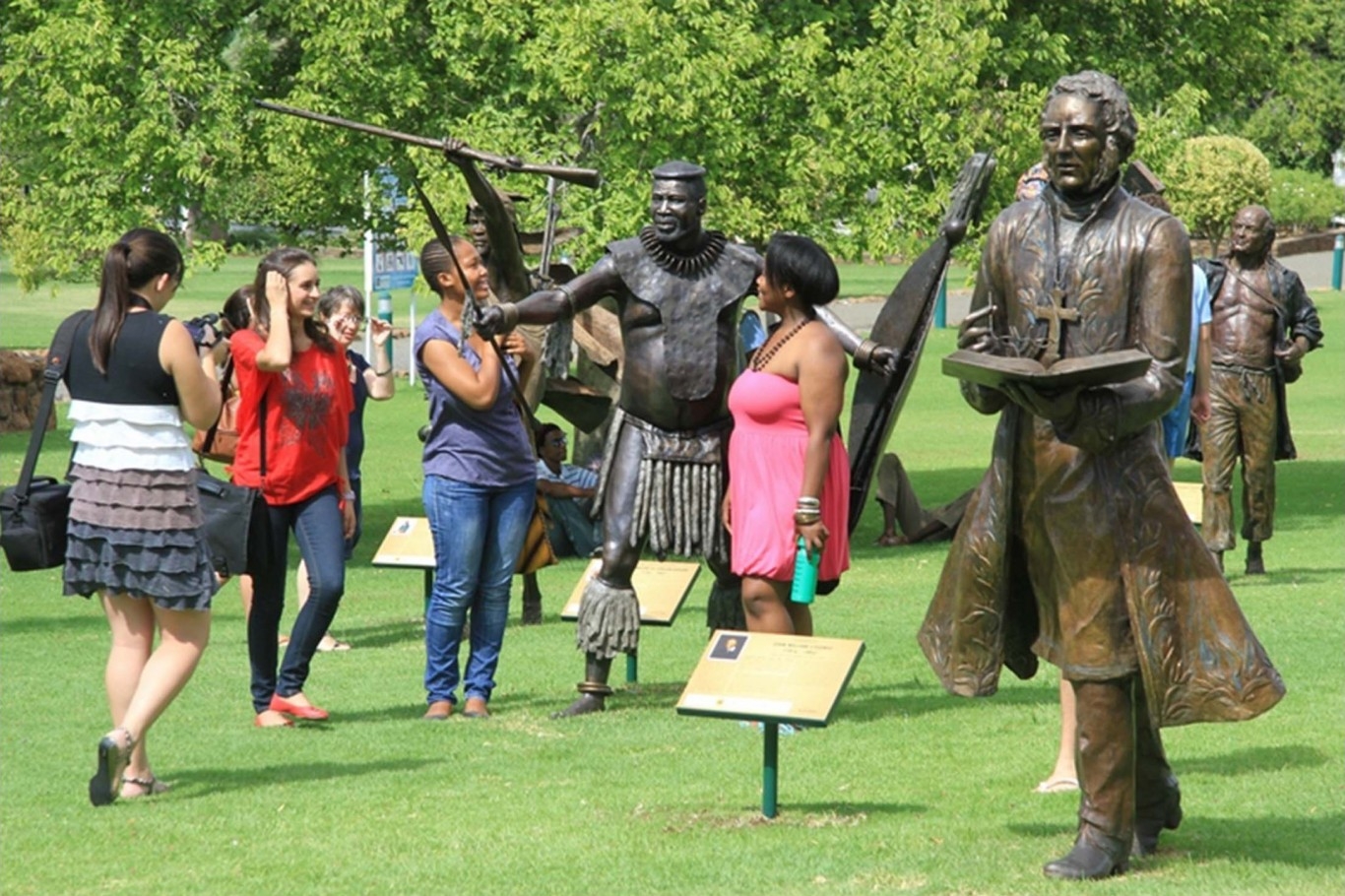In South Africa, history is inscribed into our land and our cities in a way that is hypervisible, from the monuments that pepper our towns and the demographics of our universities to the patterns of land usage and human settlement. It comes as no surprise then, that South African artists and critics constantly engage in this terrain, contesting and analysing the terms and scope of history. In the wake of the radical student protests last month, however, there is a new impetus to closely examine our history and the ways in which we conceive of it.
Haroon Gunn-Salie’s History after Apartheid at Goodman
Haroon Gunn-Salie’s first solo exhibition at the Goodman Gallery was much anticipated. This award-winning young artist consistently deals with political implications of history, in ways that are conceptually tight and visually intriguing, from Imam Haron’s funeral to Cecil Rhodes’s statue. Lwandile Fikeni considers the stains the past leaves on the present and grieving for the loss of the past.
The National Heritage Monument in Tshwane
Maverick businessman and cultural entrepreneur Dali Tambo has begun work on an enormous sculpture park of lifelike bronzes commemorating individuals who fought against apartheid and colonialism. Though the choice of material points to a kind nationalist kitsch exacerbated by the concurrent building of ‘Africa’s largest water park’ at the same location. Thuli Gamedze thinks about the significance of bronze as a colonial signifier and the commercialization of heritage.
Sightings at KZNSA
Curated by Amy Watson, Sightings, is a tight group show that starts with historical things from a range of artists like Bridget Baker and Kemang Wa Lehulere. Chad Rossouw writes how historical objects in an art context act as a hub to multiple narratives and political critique.
Lizza Littlewort’s We Live in the Past at 99 Loop
Lizza Littlewort’s paintings copy Old Dutch masterpieces, a form particularly significant in the local context of a former Dutch colony. She reinscribes these paintings with criticisms of colonial imagination and white privilege. Thuli Gamedze thinks there is a deep irony in the show, that replicates the forms it purportedly denounces.
Online exclusive published on 10 December 2015.
